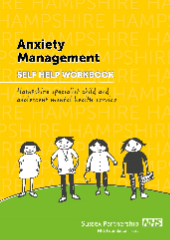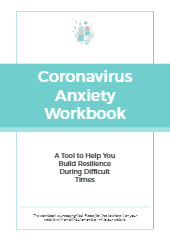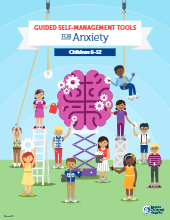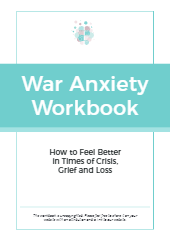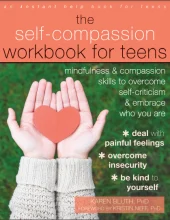The GAD test is designed to assess symptoms associated with Generalized Anxiety Disorder (GAD). By answering the provided questions, individuals can gain insights into their mental well-being and whether consultation with a qualified healthcare professional for diagnosis or treatment may be warranted.
The Liebowitz Social Anxiety Scale for Adults (LSAS) is a tool developed by psychiatrist Dr. Michael R. Liebowitz to evaluate social anxiety across various situations. Participants rate their level of fear and avoidance in each scenario presented, providing insight into how social anxiety impacts their daily life. Scores are then interpreted on a scale ranging from no social anxiety to very severe social anxiety, helping individuals and professionals gauge the severity of social anxiety symptoms.
The Anxiety Test assesses various symptoms experienced over the past two weeks, covering feelings of nervousness, worrying, trouble relaxing, irritability, and fearfulness, among others. Participants rate the frequency of each problem, providing insight into their anxiety levels. It’s important to note that while the test can offer valuable information, it’s not a diagnostic tool, and individuals are advised to discuss their results with a healthcare professional for proper evaluation and guidance.
The Anxiety Disorder Test is a screening tool aimed at identifying various symptoms associated with anxiety disorders. Participants respond to a series of questions with “yes” or “no” to assess their experiences over time. It’s recommended to seek professional guidance if the test suggests a likelihood of anxiety disorder, as only trained professionals can provide a proper diagnosis and treatment.
The Anxiety Self-Check quiz is a tool to help individuals recognize experiences associated with anxiety, allowing them to assess their symptoms over the past week. It emphasizes that while the quiz doesn’t cover all experiences or provide a diagnosis, it serves as a starting point for understanding anxiety-related symptoms. Confidentiality of responses is assured, and users are encouraged to consult a professional for a proper diagnosis.
The Anxiety Test Quiz provides instant results and is designed to assess levels of anxiety through a series of 20 questions. Participants are asked to honestly respond to each question, covering various aspects of anxiety, such as worrying, avoidance, and feelings of fear.
The Anxiety Disorder Test provides instant results and aims to assess the presence and severity of anxiety disorder symptoms through 20 questions. Participants are prompted to respond honestly to each question, covering various aspects of anxiety, such as panic episodes, avoidance behaviors, and worry patterns.
The Anxiety Personality Test offers instant results and aims to assess behaviors that may contribute to susceptibility to anxiety issues, covering 20 statements. Participants are asked to respond honestly to each statement, reflecting on their feelings and behaviors regarding impatience, guilt, perfectionism, discomfort with criticism, and more.
The Panic Attack Test is a self-quiz designed to assess if individuals are experiencing panic attacks, consisting of 10 questions. Participants are instructed to respond honestly to each statement, reflecting on their experiences of fearfulness, uncontrollable trembling, feeling like they might pass out, and other symptoms associated with panic attacks.
The Generalized Anxiety Test is a self-quiz consisting of 10 questions aimed at identifying behaviors associated with generalized anxiety. Participants are instructed to respond honestly to each statement, assessing their levels of worry regarding various aspects of life, such as health, finances, relationships, and safety.
The Social Anxiety Test is a brief 10-question self-quiz designed to assess levels of social anxiety. Participants are prompted to respond to statements regarding their feelings and behaviours in social situations, such as nervousness, self-consciousness, fear of rejection, and avoidance of social gatherings. After completing the quiz, individuals can review their responses and receive immediate results.
The Worry Test is a brief 10-question self-quiz designed to assess levels of worrying. Participants are prompted to respond to statements regarding their tendencies to worry, including factors such as parental influence, control over worry, concern about others’ opinions, discomfort with uncertainty, and preoccupation with health and safety.
The Classroom Anxiety Measure assesses students’ anxiety levels in class by asking them to rate their agreement with statements on a scale from “Strongly Disagree” to “Strongly Agree.” Participants add their scores for each item to obtain a composite Classroom Anxiety score, ranging from 20 to 100, with higher scores indicating higher anxiety levels. The measure, based on Richmond’s Situational Communication Apprehension Measure, helps educators understand students’ feelings and apprehensions within the classroom environment.
The Anxiety Test is designed for individuals experiencing symptoms of anxiety and serves as a self-screening tool to determine if further professional support is necessary. While it can help track moods and provide insights for discussions with healthcare providers, it does not replace a clinical diagnosis and should not be used as the sole basis for determining treatment.
The Social Anxiety Test is aimed at individuals experiencing symptoms indicative of social anxiety disorder, such as fear of social situations, worry about saying the wrong thing, or avoiding social interactions altogether.
The Panic Disorder Test is designed for individuals who may be experiencing symptoms such as recurrent panic attacks, fear of having another attack, or avoidance of situations that may trigger an attack. This brief questionnaire can help assess whether further professional evaluation and support may be necessary.
Worrying can indeed have significant effects on both mental and physical health. It can lead to increased stress levels, anxiety, and even depression, impacting overall well-being. This test aims to help individuals understand the extent to which worrying may be affecting their health and provide insights into potential areas for improvement. By answering the questions honestly, individuals can gain a better understanding of their worrying tendencies and take steps towards managing them for better health outcomes.
This mental health test is designed to help individuals determine if they may be experiencing symptoms of anxiety.
